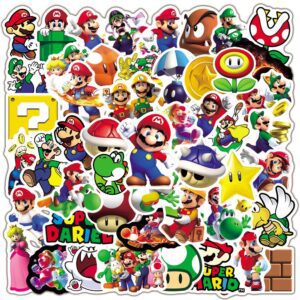Understanding the Importance of Video Game Idea Evaluation
Evaluating a video game idea is a crucial step in the game development process. It helps us determine the potential success of a concept, identify potential challenges, and decide whether to invest time and resources into development. This article will discuss practical techniques and strategies for evaluating game ideas effectively.
Assessing Originality and Market Viability
Researching the Competition
The first step in evaluating a video game idea is researching the competition. Investigate similar games in the market to determine if your idea offers a unique twist or fills a gap in the existing landscape. Take note of successful features in these games and consider how your idea can improve upon or differentiate from them.
Evaluating Market Trends
It’s essential to stay informed about current market trends and consumer preferences. Analyze popular genres, platforms, and monetization strategies to ensure your game idea meets current demand. This understanding will help you to develop a game that appeals to your target audience and has a better chance of success.

Examining the Gameplay Mechanics
Ensuring Engaging Mechanics
The gameplay mechanics are the foundation of any game. Evaluate the mechanics of your game idea by ensuring they are engaging, fun, and easy to understand. Consider if the mechanics offer a balance between challenge and accessibility, as well as if they provide a sense of progression and reward for the player.
Iterating and Prototyping
Creating a prototype is an excellent way to test your game idea’s mechanics. This allows you to see how the gameplay flows, identify potential issues, and make improvements before investing in full-scale development. Iterate on your prototypes until you are satisfied that the mechanics are polished and enjoyable.
Analyzing the Story and Theme
Crafting a Compelling Narrative
The story and theme of your game can greatly impact its appeal. Assess your game idea by examining the narrative and ensuring it is compelling, emotionally resonant, and well-paced. Consider if the story complements the gameplay mechanics and if it can be adapted to various platforms or audiences.
Evaluating the Art and Sound
Visual and auditory elements play a significant role in a game’s overall experience. Assess the art style and sound design of your game idea by considering if they complement the story and theme and if they create an immersive and memorable experience for the player.
Evaluating Technical Feasibility and Resources
Assessing Technical Challenges
Before committing to a game idea, it’s important to evaluate the technical challenges and requirements associated with its development. Consider the platforms you plan to target, the necessary tools and engines, and the level of programming complexity. Ensure your team has the skills and resources to overcome these challenges and create a final product.
Estimating Development Time and Budget
A crucial aspect of evaluating a game idea is estimating the development time and budget. Determine your project’s scope, your team’s size, and the anticipated development timeline. Ensure that you have the necessary financial resources and can allocate sufficient time to bring your game idea to life. Be realistic in your estimates, and consider contingency plans for potential delays or unforeseen expenses.

Seeking Feedback from Others
Utilizing Playtesting
Playtesting is a valuable tool for evaluating a game idea. Invite a diverse group of testers to experience your prototype and provide feedback on various aspects, including gameplay mechanics, story, art, and sound. Pay attention to their suggestions and criticisms, and use this feedback to make informed decisions about the future of your game idea.
Consulting Industry Experts
Seeking the advice of industry experts can help you gain valuable insights into the market viability and potential of your game idea. Consider reaching out to experienced game developers, publishers, or consultants for their perspective on your concept. Their expertise can provide guidance on how to refine your idea and increase its chances of success.
Making the Final Decision
After thoroughly evaluating your game idea using the methods discussed above, it’s time to make a decision about whether to proceed with development. Consider the feedback you’ve received, the market viability, the technical feasibility, and the available resources. If you believe your game idea has strong potential and aligns with your goals, it’s time to move forward with the development process. If not, it may be best to return to the drawing board and brainstorm new ideas until you find one that meets your criteria.

In conclusion, evaluating a game idea is a critical step in the game development process. By researching the competition, examining gameplay mechanics, analyzing the story and theme, assessing technical feasibility, and seeking feedback from others, you can make informed decisions about the potential of your game idea and increase its chances of success. Follow these steps, and you’ll be well on your way to developing a game that resonates with players and achieves your creative vision.













